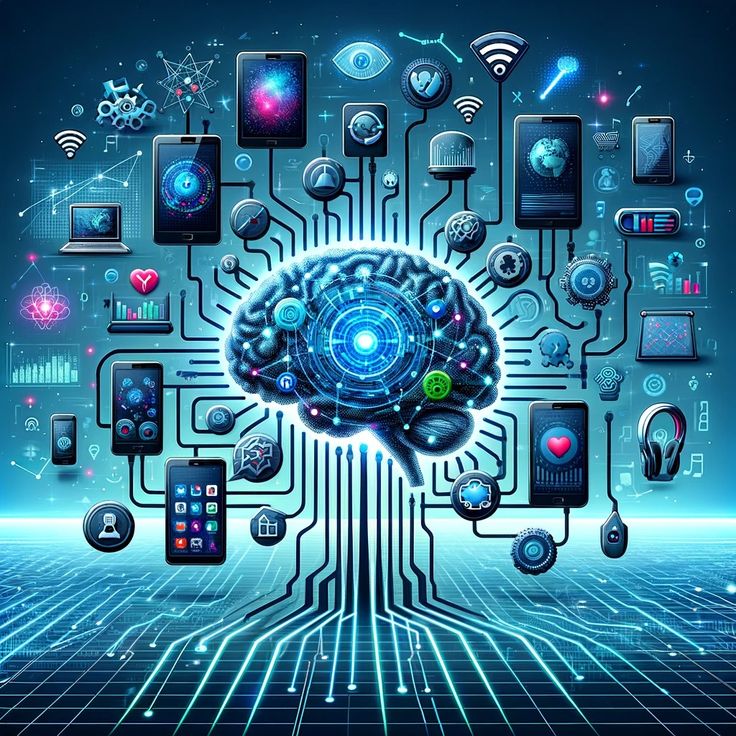Artificial intelligence is no longer a futuristic concept. It’s a true phenomenon that is changing industries all around the world. The travel, tourism, and hospitality sectors are experiencing a profound transformation, driven by AI’s ability to analyze vast datasets, learn from patterns, and make intelligent decisions.
Artificial Intelligence’s Impact on the Hospitality Industry
The hospitality industry is embracing Artificial intelligence to enhance guest experiences and operational efficiency. From guests booking a room to their departure, AI is involved in various aspects of their stay.
Personalized Experiences: AI-powered recommendation systems analyze guest preferences, booking history, and social media data to offer tailored suggestions for dining, activities, and amenities. This level of personalization creates a unique and memorable experience for each guest.
Enhanced Customer Service: AI-driven chatbots and virtual assistants provide round-the-clock support, answering guest inquiries, resolving issues, and offering recommendations. This frees up human staff to focus on more complex tasks and building stronger guest relationships.
Optimized Operations: AI optimizes hotel operations by predicting guest demand, optimizing staffing levels, and managing inventory efficiently. Better resource allocation and cost savings result from this.
Revenue Management: AI algorithms analyze market trends, competitor pricing, and demand patterns to optimize room rates and maximize revenue.
Predictive Maintenance: AI can predict equipment failures, allowing for preventive maintenance and minimizing disruptions to guest services.

The Impact of Artificial Intelligence on Tourism
AI is transforming the way people plan and experience their vacations, offering more personalized, efficient, and immersive travel experiences.
Personalized Travel Planning: AI-powered travel platforms offer customized itineraries based on individual preferences, budgets, and interests. This helps travelers discover hidden gems and create unforgettable experiences.
Improved Search and Booking: AI-driven search engines provide more relevant results, making it easier for travelers to find the perfect flights, hotels, and attractions.
Virtual and Augmented Reality Experiences: AI enables immersive virtual and augmented reality experiences, allowing potential tourists to explore destinations before visiting.
Demand Forecasting: AI helps tourism boards predict tourist arrivals, allowing for better resource allocation and infrastructure planning.
Will Artificial intelligence Replace Hospitality?
While AI is automating many tasks, it’s essential to understand that it complements human capabilities rather than replacing them. AI excels at data analysis, pattern recognition, and repetitive tasks, freeing up human employees to focus on building relationships, providing empathy, and delivering exceptional guest experiences.
The future of hospitality lies in a harmonious collaboration between humans and AI. By leveraging AI’s strengths, hospitality professionals can create more efficient, personalized, and memorable experiences for guests.

Artificial Intelligence in the Hospitality Industry
The hospitality industry is witnessing a rapid adoption of AI technologies. The following are some important domains of use:
Guest Relationship Management (CRM): AI-powered CRM systems analyze guest data to identify preferences, loyalty, and potential churn, enabling targeted marketing campaigns and personalized offers.
Revenue Management: AI algorithms optimize pricing strategies, inventory management, and distribution channels to maximize revenue.
Chatbots and Virtual Assistants: AI-driven chatbots provide instant responses to guest inquiries, improving customer satisfaction and operational efficiency.
Robotics: Robots are being deployed in hotels to handle tasks such as room service, luggage delivery, and cleaning, enhancing guest experience and operational efficiency.
The Effects of Artificial Intelligence on the Travel and Tourism Sector
AI is revolutionizing the travel and tourism industry by providing personalized experiences, optimizing operations, and enhancing customer satisfaction.
Personalized Recommendations: AI analyzes traveler data to offer tailored suggestions for destinations, accommodations, activities, and dining options.
Dynamic Pricing: AI-powered pricing algorithms adjust prices in real time based on demand, competition, and other factors, maximizing revenue.
Fraud Detection: AI helps identify fraudulent transactions and protect both travelers and businesses from financial losses.
Language Translation: AI-powered translation tools facilitate communication between travelers and locals, breaking down language barriers.
Artificial Intelligence’s Prospects in Travel, Tourism, and Hospitality
The future of AI in the travel, tourism, and hospitality industry is incredibly promising. We can expect to see even more sophisticated AI applications, such as:
Predictive Analytics: AI will be able to anticipate guest needs and preferences, allowing for hyper-personalized experiences.
Biometric Identification: AI-powered biometric systems will enhance security and provide seamless check-in and checkout processes.
Autonomous Travel: AI will play a crucial role in developing autonomous vehicles and drones for transportation and delivery services.
Ethical Considerations: As AI becomes more prevalent, it’s essential to address ethical concerns related to data privacy, job displacement, and algorithmic bias.
Conclusion
Artificial intelligence is transforming the travel, tourism, and hospitality industry at an unprecedented pace. By embracing AI, businesses can gain a competitive advantage, enhance customer satisfaction, and drive growth. The future holds immense potential for innovation and disruption, and it’s an exciting time to be part of this dynamic industry.